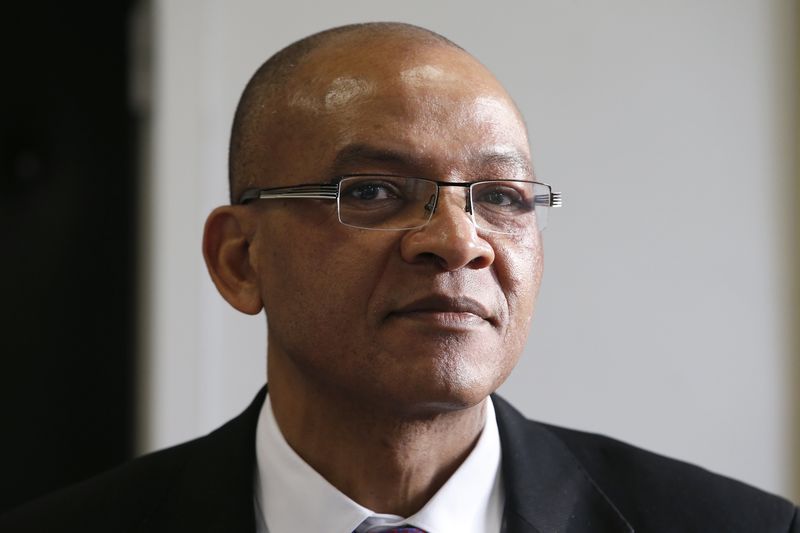By Nicholas Vinocur and Chine Labbé
SEINE-ST-DENIS, France (Reuters) - When Guillaume, a 22-year-old Frenchman, left jail two months ago vowing to die as a martyr for Islam, community worker Sonia Imloul had a few minutes to convince him he was on the wrong path.
In an exit interview shortly after his release, she appealed to a Muslim sense of duty toward his adoptive mother Vivienne and persuaded him to attend regular checks by educators and psychologists - a soft-touch approach to deradicalization.
Now Guillaume is back home drinking Coca Cola - taboo for many radical Islamists - and spending time with his girlfriend.
"She saved my son," said Vivienne, 73, of Imloul, whose years of experience with youth delinquence in the tough northern suburb of Paris has put her at the forefront of the country's efforts to "deradicalize" would-be jihadis.
France has been slow to respond to the spread of jihadist ideology because strict state secularism forbids any incursion into individuals' religious affairs. This has created a breeding ground that has pulled in converts like Guillaume, radicalized while in prison for assaulting a police officer.
Other EU countries have started their own initiatives with varying levels of success but the patchy approach in France and elsewhere highlights the need for a quick and coordinated European response, particularly to counter online propaganda.
Fearing attacks on French soil, France is now ramping up its efforts, with a hotline for worried parents and tougher laws to stop minors leaving the country.
The pilot program Imloul set up two months ago from a secure apartment 40 minutes train ride from Paris is on the frontline of the fight.
Her team of psychologists and educators - a model partly inspired by a Canadian scheme - immediately had their hands full. Guillaume's case alone required immediate attention and hours of follow-up work.
Participants leaving jail are not told they are in a deradicalization scheme, rather they are offered psychological support and help finding jobs as part of a parole agreement.
"It's a fight against the ideology, but also against time," said Imloul.
"If we wait, or if we let too much time lapse between meetings, the recruiters win. And if we do nothing, there is a good chance one of these young men will take action here, in France."
An estimated 1,000 French nationals have been linked to fighting in Syria or Iraq, more than any other Western nation, with 100 of those now back in France. Last week Maxime Hauchard, a 22-year-old French convert, appeared in a video of the beheading of a U.S. aid worker.
TIME AND MONEY
Imloul's program, which covers the larger Paris region, is a pilot for schemes to be rolled out nationally with a budget of 800,000-1 million euros for this year, said Pierre N'Gahane, the official in charge of deradicalization nationally.
But while such schemes target potential jihadis, security officials are increasingly worried about attacks by fighters returning from Syria. No approach has yet been determined to deradicalize them.
"These people should undergo deradicalization," said N'Gahane. "But the question (of how), is still on table. We make no secret of that."
Other European countries have moved faster: Britain set up deradicalization schemes run by Muslim leaders in the early 2000s, but results are lacking and Prime Minister David Cameron has since promised a tougher approach.
Germany, which has a state-by-state federal approach, has won plaudits for its Exit program, originally designed to help neo-Nazis reintegrate into society. Denmark's Aarhus program has also won praise for its success in re-socializing Islamist radicals through a mix of psychological help, counseling and mentoring.
N'Gahane said France's strictly secular model was an important factor in delaying France's response.
"When a family came to us .... we didn't know what to answer, we would say it's a religious problem, that's in the private sphere," he said. "We needed to come up with criteria that allowed us to discern between religious practices and radicalism. That took time."
Imloul said it can be difficult to spot the signs of radicalism.
"None of the guys, on their way to jihad, are wearing a beard and a khamis (traditional garment)," she said. "The only way to know is by talking to them, picking up on the cues that tell you who belongs to what current."

"For that, we need time. And money."
(Additional reporting by Mike Holden in London, Alexandra Hudson in Berlin, Annabella Pultz in Copenhagen; Editing by Mark John and Anna Willard)